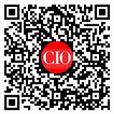WORK vs GOING TO WORK
How is Working from Anywhere a New Normal?
CUSTOMER PROFILING
Moment to Acquire, Retain and Gain More

Laying Foundation for Constant Evolution


How is Working from Anywhere a New Normal?
Moment to Acquire, Retain and Gain More

Laying Foundation for Constant Evolution

For Peter Kanda - CIO, Gertrude’s Hospital, the tried and tested healthcare sector calls for collaboration, automation and innovation.












As we bridge the gap in this new age of social distancing make Our AUDIENCE Your COLLABORATORS
CIO East Africa leverages webinar sessions to help the IT enterprise community decision makers to stay informed and build stronger business relationships with the most valued customers and prospects.












To participate in the thoughtleadership sessions register SCAN QR CODE





PUBLISHER
Harry Hare
OPERATIONS DIRECTOR
Andrew Karanja
CHIEF EXECUTIVE OFFICER

Laura Chite
MANAGING EDITOR
Humphrey Odhiambo

Deputy MANAGING EDITOR
Carol Odero
TECH WRITERS
Molly Wasonga |


Ambrose Gahene |

TECH COLUMNISTS
Francis Mwangi | Robert
Yawe | Michael Michie |

MARKETING MANAGER
Vanessa Obura
SALES MANAGER
Josephine Soi
EVENTS MANAGER
Ellen Magembe
FINANCE MANAGER
Norah Kirumba
EVENT EXECUTIVES
Mellisa Dorsila | Joan
Jepkosgei | Justin
Maganga | Felix Moturi
SUBSCRIPTION MANAGER
Stacey Njeri
PHOTOGRAPHY
Arthur Kintu
BUSINESS CONSULTANT
Njambi Waruhiu
EVENTS PLAN LEAD

Bonface Shikuku
ADMIN STAFF
Videlis Syovata
Priscilla Egehitsa
Daniel Mwaha
TRAINING
Rose Waguthi
CREATIVE DESIGN
Sam Morara | Infobox























 Molly Wasonga Tech Writer
Ambrose Gahene Tech Writer
Arthur Kuwashima Lead Photographer
Vanessa Obura Marketing Manager Josephine Soi Sales Manager
Ellen Magembe Events Manager
Mellisa Dorsila Events Assistant
Joan Jepkosgei Account Executive
Stacey Njeri Account Executive
Justin Maganga Account Executive
Felix Moturi Audience Generation Executive
ADMIN
Videlis Syovata AdmiNstrator
Laura Chite CEO,CIOEastAfrica
Norah Kirumba Finance Manager
Andrew Karanja Director,CIOEA
CAROL ODERO Deputy MANAGING Editor
Robert Yawe CEO, SYNAptech Technologies
MICHAEL MICHIE Head of IT, TripleOKLaw
Allan Juma Technical Lead, ESET East Africa
DR. FERNANDO WANGILA CIO, National Transport & Safety Authority
Molly Wasonga Tech Writer
Ambrose Gahene Tech Writer
Arthur Kuwashima Lead Photographer
Vanessa Obura Marketing Manager Josephine Soi Sales Manager
Ellen Magembe Events Manager
Mellisa Dorsila Events Assistant
Joan Jepkosgei Account Executive
Stacey Njeri Account Executive
Justin Maganga Account Executive
Felix Moturi Audience Generation Executive
ADMIN
Videlis Syovata AdmiNstrator
Laura Chite CEO,CIOEastAfrica
Norah Kirumba Finance Manager
Andrew Karanja Director,CIOEA
CAROL ODERO Deputy MANAGING Editor
Robert Yawe CEO, SYNAptech Technologies
MICHAEL MICHIE Head of IT, TripleOKLaw
Allan Juma Technical Lead, ESET East Africa
DR. FERNANDO WANGILA CIO, National Transport & Safety Authority
If2020 has continued to teach us anything, it is that informed and purposeful leadership is essential in a time of crisis.
To adapt and get ahead, leaders need to focus on strategies that leverage emerging technologies and the inherent strengths of their workforce.
While in the May 2020, I editorialized how thinkers, despite suddenly feeling that planet earth had suddenly become a dangerous place to live in, there emerged some bold and innovative ones who refused to budge to the global scourge.
Well, in response to the coronavirus pandemic, thoughtful leaders and innovators jumped to fix the situation. Now the call is to peer the thoughts beyond COVID-19 – the global pandemic.
What these innovations have in common is that they solve problems, which indeed is always at the heart of innovation. Such innovations, largely driven by the intensely human desire to help, to connect with other people, and be part of the solution when things get hard is what keeps life going.
However, there is much more to the generative nature of a crisis that leads to innovation than simply an opportunity to solve problems. Crises present us with unique conditions that allow us to think and move more freely to create rapid, impactful change.
As leaders who are continuously learning, these conditions provide us with the
opportunity to do our best to help, and for our teams to do their most innovative work in the service of our organizations.


One of the key leadership challenges in day-to-day organisational life is inspiring engagement and generating energy toward the goals of the organization.
During a crisis like the one we continue to undergo, there can be a massive spike in energy present in the workforce. Leaders who can appropriately focus the energy of its workforce toward a clear purpose in resolving the crisis will typically find more than just a deep wellspring of energy and discretionary effort.
Some say that courage is defined when purpose overcomes fear. In this way, crisis can create the organisational courage to take actions in support of a purpose that would be unthinkable in times of calm.
Leaders often leverage consultants to get a fresh, outside perspective on their organizations to find opportunities to innovate. Interestingly, we stand to have more solutions during crises when we collaborate to put the spotlight on vulnerabilities we tend to ignore or are just plain unaware of. Since we can, let us collaborate!
HUMPHREY ODHIAMBO Managing Editor
The content of CIO East Africa is protected by copyright law, full details of which are available from the publisher. While great care has been taken in the receipt and handling of material, production and accuracy of content in this magazine, the publisher will not accept any responsility for any errors, loss or ommisions which may occur.
With the outbreak of the COVID-19 pandemic at the beginning of this year, organisations across the planet began to shift into action. As critical as it was to react appropriately, it has also been important to prepare proactively for the next phase.
At Huawei, we are aware of the massive effect of the pandemic, as well as how seriously affected communities would be. However, we are also conscious that as well as protecting lives, we need to help lay the foundation for the next stage of society’s technological advancement –the Fourth Industrial Revolution.
Am inspired by a recent YouTube video of young South African dancer Hlumelo, who has been under lockdown in his home township of Gugulethu. A member of the Zama Dance School, Hlumelo has not let the lockdown hold him back, and has continued practising his steps for the moment when he and his friends can perform together again.
Similarly, during the Chinese lockdown, members of the Shanghai ballet continued to practise – wearing facemasks – for their upcoming performance of Swan Lake. They took precautions, but remained focused on the next phase of their development.
This reminds me of a saying from a Chinese poem that “Good honing gives a sharp edge to a sword. Bitter cold adds keen fragrance to plum blossom”. It implies that preparation is essential to being effective, and that hardship can shape ultimate success. Indeed, chance favours the prepared mind.
Now that we have spent several weeks with shuttered schools and locked-down business, our conversation is turning to how to reopen the economy. It is becoming increasingly clear that the way to do that is not to rush back to
the same busy, concentrated work and social environments we had before.

When we re-open, communities and workplaces will have to continue practicing social distancing. We will continue to rely on high-speed connectivity to bind us together. In many cases, ICT networks support the fight against the coronavirus, but also the evolution of human society itself.
During the pandemic, once Huawei had secured our people and our operations, we looked at how we could support our business partners on the African continent through our core competences in the ICT sector. We were fortunate to be able to assist with social distancing by African organisations through our technologies.
The video conferencing systems we provided in some African countries enabled information sharing domestically and experience exchange internationally between epidemic prevention experts in China and Africa.

ICT has been critical to fighting the Covid-19 pandemic and transforming society over the long term. However, the key to progress is laying the foundation for constant evolution, writes Chen Lei, President of Huawei Southern Africa Region.CHEN LEI President of Huawei Southern Africa Region
Huawei will continue using our core information and communication capabilities to support Africa’s epidemic control efforts.
When the dust settles, and we begin to arrive at the much-heralded “new normal”, we will have seen the immense potential for ICT to build social cohesion.
A new business model is taking shape across sectors, one characterised by remote work, distance education, remote healthcare, online shopping and mobile money. These business models span transportation, security, finance, medicine, education and entertainment, which new paradigm driven by greater data consumption, facilitated by the mass connectivity of 4G/5G technology upholds.
Governments are coming to understand the need to prioritise ICT as a necessity. As a recent white paper noted, the Covid-19 pandemic is seeing 5G transform healthcare response mechanisms to become digital, accurate and smart.
The epidemic has brought home to policymakers the importance of ICT in national development. This is likely to accelerate the establishment of a national data centres, optical fibre networks and communication base stations.
This kind of “big network” deployment also presents a historic opportunity for Africa to use ICT to catch up with, and overtake other nations in terms of human development and quality of life for all its citizens.
We are seeing the first signs of digital transformation not just in healthcare systems, but also across entire economies, and society itself.
ICT platforms are likely to provide the foundation of Africa’s future economy. The key is to continue honing and perfecting them, expanding their use even now, so that once the lockdown ends, we can recover more quickly.
As the old poem notes, good honing does indeed give a sharp edge to a sword. Like Hlumelo and the dancers of the Shanghai ballet, we should spend this time honing our abilities. When the new dawn arrives – as it surely will – let it find us well prepared to seize the day!
A compilation of trends. The quest of networking, forging new partnerships and inspiring East African IT landscape .
Checkpoint dome9 protects public cloud infrastructure native controls by; continuous compliance,automatic discovery, macro segmentation and privileged identity protection among others. @laurachite #CIOWebinarSeries #SecurityInTheCloud @kiganda_mo @drumaniax @CheckPointSW https://t. co/3FIw2Z3DCA
Fraud patterns are evolving quickly as a result of the coronavirus outbreak. Businesses must observe not just multi-factor but also multi-channel authentication models. @Bckkenya #DigitalAuthentication #CyberCrimes #OnlineFraud #CIOWebinarSeries https://t.co/MCkMovZzhG
Is the Kenyan workforce, especially those merging from tertiary learning institutions, prepared for new skill sets in this digital era? #DiversifiedWorkForce #CIOWebinarSeries @HudumaKenya @uonbi @bantigito @martinmirero https://t.co/KbKfry0bwO
Decentralization of education and mass customization should be the next leap in education. We must move from old times into new times #DiversifiedWorkForce #CIOWebinarSeries @HudumaKenya @uonbi @bantigito @laurachite @ martinmirero https://t.co/UJHOf4kxJE
Cloud Security Threat Landscape involves; •Escalated privileges & stolen credentials, •Vulnerable server-less functions, •Storage open to the internet, •Unprotected containers etc.#CIOWebinarSeries #SecurityInTheCloud @kiganda_ mo @drumaniax @CheckPointSW https://t.co/If5UMPIb0p
Decentralization of education and mass customization should be the next leap in education. We must move from old times into new times #DiversifiedWorkForce #CIOWebinarSeries @HudumaKenya @uonbi @bantigito @laurachite @ martinmirero https://t.co/UJHOf4kxJE
Are you a merchant? Then expect fraud to diversify! Attackers generate email to reap referral credits ACI Worldwide notes that the value of fraudulent transactions grew in value by 13% by March 2020. @Bckkenya #DigitalAuthentication #CyberCrimes #CIOWebinarSeries https://t.co/7YjJ2S4ZNX

Your datacenter and applications are now everywhere with Cloud workloads becoming a major attack vector. Join Ozan Oguz, at a webinar today to learn why you need to secure your cloud. @CheckPointSW @laurachite #CIOWebinarSeries #SecurityInTheCloud @tellistictech https://t.co/6giyF7CbiI
Companies within East Africa are realizing that traditional security solutions are no longer enough to keep them ahead of today’s complex threats, hence the need to adopt a cybersecurity system for protection. #ITSecurity @Sophos @ SophosLabs #ITLeadership #CIOWebinarSeries


Catherine Muraga, the former CIO at Sidian Bank has changed places to Stanbic at a similar position. In her new role, Muraga is responsible for the formulation and execution of IT strategy in alignment to Stanbic Bank’s overall stratagem. She formerly worked with the financier as the Head of IT Operations between 2014 and 2015, a period during which, she was responsible for the bank’s IT Operations (Data Centers, Network & Infrastructure, IT Applications and Service Delivery). She is a C-Level Executive with a passion to apply technology to create business outcomes and an experienced IT professional with a demonstrated history of working in Manufacturing, Airline and the Banking industries.
Kenya Airways recently appointed Peter Mungai, the acting Chief Information Officer. Having worked with the National Carrier at different positions in the IT department, Mungai has a proven ability to establish new business paradigms. Until his new role, he served as the Director IT Transformation and IT head of Operations, where he led strategic IT transformation programs. He has a Bachelor of Science Degree in Mechanical Engineering from Northeastern University, with 20+ years’ experience in the IT sector in both Kenya and the United States.

Pamela Ahago, former Deputy Commissioner for Policy & International Affairs at KRA, was recently appointed the acting Commissioner for Customs & Border Control to steer the department as Commissioner Kevin Safari is on a three-month leave. She is a trained negotiator with experience in regional and international negotiations, who has represented KRA in regional and international negotiations on trade. She worked with the World Customs Organization (WCO) as head of the Regional Intelligence Liaison Officer for Eastern & Southern Africa
(RILO ESA). As an expert on Rules of Origin, she has participated in the formulation of both the East African Community (EAC) and the Common Market for Eastern and Southern Africa (COMESA).

Following the completion of the acquisition of the Mpesa Brand, Safaricom has appointed Sitoyo Lopokoiyit to head this financial services division. Until March 2016, Lopokoyit was Safaricom’s head of department in charge of financial services (MPESA), a position he held for almost 5 years before he was picked to head m-commerce
and MPESA services at Vodacom Tanzania. He later rejoined the telco as the head of financial services, a position he held until his most recent appointment. His new appointment is part of the process to establish a leadership team for the newly created joint Mpesa venture between South Africa’s Vodacom Group and Safaricom.

Safaricom’s Head of Sustainable Business and Social Impact, Sanda Ojiambo, was appointed recently as the Executive Director of the United Nations Global Compact (UNGC), the world’s largest corporate sustainability initiative, at an announcement made by United Nations Secretary-General António Guterres.
Sanda assumes the role from 17th June to take over from Denmark’s Lise Kingo, who has been with the UN Global Compact since 2015.
“Sanda has been instrumental in leading our Sustainable Business team that focuses on Sustainability, Shared Value, Corporate Social Investment, and Technology for Development. She has also played a major role in the integration of
the Sustainable Development Goals (SDGs) into our business operations,” said Peter Ndegwa, Safaricom CEO.
Sanda has served as Safaricom’s Head of Sustainable Business and Social
Impact since 2010. Before that she was the Senior Manager of Safaricom and MPESA Foundations during which she led the implementation of several public-private partnership initiatives between Safaricom and UN organizations. She holds a Master of Arts in Public Policy from the University of Minnesota, the USA, and a Bachelor of Arts in Economics and International Development from McGill University, Canada.
“Sanda brings 20 years of experience to lead the Global Compact in its next phase to mobilize a global movement of sustainable companies and stakeholders and bring the full weight of the private sector to achieve the SDGs”, Said António Guterres, United Nations Secretary-General.

Sophos a global leader in next-generation cybersecurity, has announced the appointment of Sharon Evelyn Ombongi as country manager for Kenya. In her new role, Ombongi will drive the company’s strategic business growth in the country.
Based in Nairobi, Ombongi brings more than 12 years of experience in the IT industry to Sophos. Prior to joining Sophos, she was the country manager for Symantec for East Africa, where she was responsible for developing partner and end customer markets. Ombongi has also led enterprise sales for brands like Oracle, Cisco, Checkpoint, EMC, VMware, and Hitachi at various distribution companies she worked for in East Africa.
“Kenya is one of the fastest growing markets for Sophos in Africa and we have an aggressive expansion plan for the country,” said Harish Chib, vice president, Middle East and Africa, Sophos. “We are excited to welcome Sharon to lead our operations in
Kenya. She is a well-known executive within the East African IT industry. With her in-depth knowledge and expertise in IT security, Sharon is an ideal fit to lead our business strategy for Kenya and drive Sophos’ growth in the country.”
“IT security remains a highly challenging and complex area for East African organizations. Rapid digitization in the region has given rise to many connected devices and therefore new technology vulnerabilities cybercriminals could potentially exploit. With this shift, regional companies have realized that traditional security solutions are no longer enough to keep them ahead of today’s complex threats and
they need to adopt a cybersecurity system for protection,” said Ombongi. “Sophos is well poised to capitalize on this demand with its innovative synchronized security technology. I am thrilled to join the company that is delivering advanced, next generation cybersecurity solutions.”

Launched from Puerto Rico, a large fleet of Loon balloons is heading to Kenya after successful parading from Loon’s launch recently in Puerto Rico.
These balloons will join the eight balloons that are already active and part of a network integration exercise in Kenyan airspace. Upon arrival, this larger fleet of balloons will continue network integration testing with its local partner, Telkom Kenya, in preparation to begin serving users as quickly as possible. The recently launched balloons are expected to gradually begin arriving above Kenya, in the coming few weeks.
The Loon service, will seek to use its 4G/LTE Internet solution to connect unserved and under-served communities in Kenya. Initial coverage areas have already been identified, starting with Nairobi, Machakos, Nyeri, Nakuru, Kitui, Nanyuki, Narok and into Kisii.

Telkom Kenya’s Chief Executive Officer (CEO) Mugo Kibati states: “These balloons will be used to expedite integration testing of this pioneer

Opera, one of the world’s major browser developers has today launched Opera Mini 50. Opera Mini 50 is a small, fast and powerful browser that comes with unique features such as data compression technology, a download manager with offline file sharing capabilities,
LTE service. We will glean off insights from those tests to fast track integration of all other balloons that have been dispatched from Loon Inc.’s launch sites and are to arrive in Kenya over the coming few weeks. Once the balloons are in place, this new technology will complement Telkom’s ongoing strategy to further widen its network coverage, confirming the telco as Kenya’s preferred data network.”
and a built-in ad-blocker. In the major upgrade, the popular browser has fully revamped its user interface to allow its users a more personal and intuitive way to interact with the browser features they love the most.




The ministry of health in Rwanda has imported five robots for use against the fast-spreading coronavirus. The five robots have been given Rwandese names and will serve as an interface between the doctors and the patients, thereby reducing human contacts and risks of the virus’s transmission. Rwanda had, until this announcement, registered 273 confirmed cases of COVID-19, including 136 recoveries, according to the country’s health ministry. The Minister for Health in Rwanda, Daniel Ngamije, confirmed that the health ministry is planning to employ robots in coronavirus treatment centres and other public places.
A twitter post on Rwanda Biomedical Centre’s official handle read; “We are introducing the use of robots in the management of our #COVID19 Treatment Centres to reduce transmission risks. Robots will screen temperature, monitor status, keep medical records of Patients. @ RwandaICT @RISARwanda
@RURA_ RWANDA.”Besides applying in the treatment centres, the robots will also be used to measure temperatures in other public places such as bus stops and entrances of shopping arcades, he said. “The robots will be used as the interface between doctors and patients to avoid any possible human contact,” said Minister Ngamije. Adding, “Some of the robots have already been in Rwanda and will be programmed and employed first. Since the outbreak of COVID-19, they have deployed drones to raise public awareness about the disease.
Startup Suit, a solution aimed at enabling Small and Medium Enterprises to effectively manage their operations remotely emerged tops in the recent Great COVID-19 Innovation challenge championed by Konza Technopolis Development Authority (KoTDA) in partnership with the ICT industry players in Kenya.
Zinake a cloud-based platform that conveniently connects temporary workers to job opportunities in their locality at the click of a button came second with Garden fresh a localized agri-food system that provides year-round growing of food crops in urban areas came third. The solution aims at promoting urban access to sustainable and nutritious food crops.
The competition attracted 316 from 47 counties, 53% of the submissions were focusing on health systems, 28% of the submission were on dignified work challenge while 19% of the submissions were on Food System innovation for Covid 19.
Speaking during the closing and award ceremony, Jerome Ochieng, Principal Secretary, Ministry of ICT & Innovation, Kenya said that “Over 300 innovations were submitted, 40 were shortlisted to proceed to the 48-hour hackathon session that ended over the weekend. This involved the teams going through a rigorous process on co-creation with their mentors, trainers and facilitators with the aim of coming up with innovations that meet the needs of the end-users.”
The government of Kenya through Konza Technopolis Development Authority (KoTDA), partnered with the


Association of Countrywide Innovation Hubs, private sector, academia, nongovernmental organizations and the United Nations Development Program (UNDP), to launch the Great Covid-19 Innovation challenge.
The great COVID-19 Innovation challenge was aimed at harnessing the creativity and innovation of Kenyans under three thematic areas of- Health Systems Innovation, Food Systems Innovation and Dignified Work. Since the declaration of COVID-19 as a global pandemic, the Government together with stakeholders from the private sector and academia have pulled together to find ways of mitigating the effects of the pandemic on the economy and its citizens.


Uganda’s digital economy is set to get a major boost following the unveiling of Raxio Data Centre, which has nine new local fibre carriers signed on at the Namanve-based carrier-neutral facility.
These nine local fibre carriers are: Africell Uganda Limited, Airtel Uganda, Bandwidth and Cloud Services Group (BCS Group), Csquared, Liquid Telecom, MTN Uganda, National Information Technology AuthorityUganda (NITA-U), Roke Telkom and Uganda Telecom Limited (UTL). Speaking at the unveiling, the General Manager of Raxio Data Centre Mr. James Byaruhanga stated that this move would see customers enjoy the benefits of a carrier neutral data centre.
May Our AUDIENCE Be Your CUSTOMERS ! Seize the OPPORTUNITY on the CIO DIGITAL SPACE



As COVID-19 continues to change the global landscape, GSMA has lauded the Sub-Saharan Africa mobile network operators’ efforts in supporting governments within the region to contain the spread of the virus.

According to GSMA’s Head of SubSaharan Africa, Akinwale Goodluck, the response to the crisis situation by mobile network operators along with stakeholders such as Huawei Technologies as well as NGOs, and academics in ensuring connectivity keeps people informed has given credence to digital mobile services and hope in utilizing it to contribute services purposed to contain the pandemic.
Facebook is collaborating with several telcos in Africa to bring faster internet connectivity, following Google that introduced Equiano, a private subsea cable connecting Europe to Africa.
Together with a consortium of Telcos including China Mobile International, MTN GlobalConnect, Orange, STC, Telecom Egypt, Vodafone, and WIOCC, the social media giant plans to build a giant sub-sea cable to serve the African continent.
“We’re excited to be collaborating with our 2Africa partners on the most comprehensive subsea cable that will serve the continent,” said Najam Ahmad, Vice President, Network Infrastructure at Facebook.
The project allocated a total of $1 billion is expected to be operational come 2023/4. Branded as 2Africa it will cover 37,000-kilometers, making it one of the longest undersea cable networks in the world. Africa’s capacity will be bigger than all the existing undersea cables that serve Africa combined. The design lets the cable carry up to 180Tbps.

It connects Europe (eastward via Egypt), the Middle East (via Saudi Arabia), and 21 landings in 16
Kenyans can now have convenient and subsidized access to medical consultations through a doctorfounded healthcare service providing Telemedicine solutions. The medical consultancy service, Dial Daktari, powered by Telkom in partnership with Valentis Health, allows patients to access board licensed doctors, via their phones. This service will enable
patients to observe physical distancing and to mitigate the risk of personto-person infection, as stipulated by health authorities during this pandemic. The Founder and CEO of Valentis Health, Dr. Don Othoro, says: “The integration of online and offline healthcare means that our doctors are able to deliver seamless consultations, just as they would in person.”
countries in Africa. Alcatel Submarine Networks will lay the cable that is believed to be cost-effective, thanks to its underlying 16-fiber pair technology which allows it to carry greater and more cost-effective capacity.
Earlier this year in March 2020, a 36TB submarine cable, the Djibouti Africa Regional Express-1 (DARE 1), arrived in Mombasa. The cable is developed with investment from Kenya’s thirdlargest mobile operator Telkom, on the coast of Mombasa complementing the already existing subsea cables.
 Akinwale Goodluck, GSMA Head, SubSaharan Africa
Akinwale Goodluck, GSMA Head, SubSaharan Africa

MasterCard recently embarked on a collaboration with transportation solutions provider EYWA and leading financial institution NMB Bank to launch the EYWA Transit Solution in Tanzania.

Consisting of a mobile App and a Transit Card, this first-of-its-kind mass transportation solution in the country will leverage cashless payments and digital technologies to efficiently transform how millions of commuters are moved daily within and across major cities.
Powered by the MasterCard quick response (QR), EYWA’s mobility management platform technology, and NMB Bank’s banking expertise, commuters can now minimize contact during transit and stay safe as they commute.
The solution enables commuters to avoid ticket-buying queues, check into the waiting pool of their destination, track the time of arrival of their buses and avoid the jostling and human-to-human contact by scanning their card to board the bus. With the use of their mobile phones (feature or smartphone) and transit cards, commuters can also cut out cash payments and the time wasted
Following the Government of Uganda’s decision to limit access to offices, schools and universities, Airtel Uganda ‘s leading provider of prepaid, postpaid mobile and 4G services, has partnered with Avaya Holdings Corp. to enable organizations to implement remote working and learning initiatives.
Through the partnership, Avaya will offer organizations in Uganda full-feature access to its flagship collaboration app, Avaya Spaces, on a complimentary basis, through Airtel Uganda to curb the spread of COVID-19.
Recognized for its ease and speed of implementation, Avaya Spaces works on all android, iOS smart devices, and accessible it is on personal computers and laptops via Chrome or Firefox browsers. With obvious use cases for schools, it enables teachers and administrative staff to communicate with parents, students and each other to minimize learning disruption amid the school closure.
Using the app, students will be able to participate in virtual classrooms from any location, with the ability to download study materials and send assignments to teachers electronically.
waiting for change through the prepayment feature.
This service will be available at all bus stations nationwide in Tanzania, starting with Dar es Salaam. MasterCard and EYWA plan to expand to other markets across East Africa, enabling more people to enjoy smooth and seamless digital transit services in the coming months.
Businesses too will benefit from the new offering, as the app allows employees to hold virtual meetings, share documents and manage tasks, and establish dedicated digital forums where teams can engage non-stop on specific projects.
Airtel Uganda also recently announced reaching a milestone of 2,000 network masts across the country. With the availability of this countrywide 4G LTE connectivity, students and teachers can access the app seamlessly.









Whilethe is no doubt that COVID-19 has created unprecedented business and regulatory disruption in a condensed period, there are massive changes to how the ICT industry regulator continues to operate, regulate and supervise purposely to uphold compliance. Humphrey Odhiambo talked to Mercy Wanjau, Ag. Director General, Communications Authority of Kenya on the day-to-day firefighting on the wake of disruption, new risks can appear quickly, and existing risks that can manifest into real problems.
Considering the regulatory aspects of CA during this unprecedented COVID-19 scourge, how has the crisis affected routine operations of the industry regulator?
In line with the Presidential directive requiring institutions to allow staff to work from home, the Authority has also scaled down its office operations with about three quarters of staff working from home.

This is aimed at minimizing frequent interactions that may create an environment for further spread of the COVID-19. However, our operations are going on normally, as we have adopted new mechanisms of working. We have for instance scaled up the use of video conferencing to hold virtual meetings and enabled staff to work remotely.
To what extent has disruption by COVID-19 recalibrated how the Authority while observing its mandate and effectively collaborate and help sector players rebound back to business after navigating through the COVID-19 crisis?
The Coronavirus is adversely affecting the whole spectrum of the economy and the ICT industry is no exception. We are continually engaging with the operators to ensure that they put in place contingency measures which will address the huge demand for communications services during this period and on the other hand, any negative impact in terms of the sustainability of their businesses in this season.
Separately, the industry is also encouraging the operators to activate their business continuity measures to meet any challenges that may arise during this period of uncertainty. We are in this regard alive to this new reality and wish to assure Kenyans that we are doing everything possible to ensure the services are available and in sufficient levels.
The Authority is also working round the clock to cushion consumers against unfair exploitation
that may arise from individuals wishing to take advantage of the present predicament.
We advise ICT consumers to report such cases to the Authority through email: chukuahatua@ ca.go.ke, telephone: 0703-042-000/ 0204242000/ and through our social media platforms.
What are some of the obvious challenges CA is experiencing as it adjusts to render its core services to the optimum in this rapidly changing times digital times?
At the moment, one of the major challenges is our staff working in the office can only do so up to 4.00 PM, to enable them beat the curfew time. This means we can only serve customers visiting our offices physically up to that time. Secondly our staff working from home have had to adapt to the new normal and are expected to deliver just as when they were in office. In the first weeks there were some challenges as the staff also had to cope with teething issues, such as time management and also grapple with other duties such as home schooling for their kids.
How does CA purpose to enhance security of critical installation along with the IT enterprise community as both the public and private sector players accelerate the deployment of digital solutions going forward?
With the Coronavirus pandemic, the Authority through the National Computer Incident Response Team Coordination Centre (National KE-CIRT/CC), has noted a dramatic increase in cases of cyber threats related to the COVID-19) outbreak.
Cyber criminals are aware that what’s on people’s mind now is the COVID-19 and that’s why we now see cases revolving around the circulation of alarming information which then lure unsuspecting users to open such information in the form of emails, or social media posts and some through SMS related scams.
Such communication, that in technical language we call Phishing, tend to be emails appearing like they are from a reputable company which then require one to provide personal information such as usernames, passwords and credit card information.
The cyber-offenders aren’t sleeping. Right?
Criminals hardly sleep. They are now using even email messages that might request you to open an attachment in order to view the latest statistics or information on Coronavirus. If you click on the attachment or embedded link, you are likely to download malicious software onto your device which could allow them to take control of your computer, access your personal information and financial data, which could lead to identity theft.
Then we have the other one which comes in the form of a misleading headline on a website or social media platform. This one is intended to entice the reader to follow the link so as to read, view or listen to the linked piece of information.
The misleading content could be a video, picture, story or combination,
which is packaged in an alluring and sensational manner such as, “You won’t believe it,” “You’ll never guess who said this” with the objective of tempting users to click on the links. What precautions should be taken considering that remote working suddenly become the norm?
Both individuals and organizations must observe a number of safety precautions against these cyber threats. These include requests for personal information. It is important to be on the look-out for suspicious emails or phone calls requesting for your account information or asking you to verify your account information.
It is very important to as well pick out on grammatical and spelling mistakes on mails. If an email includes spelling, punctuation, and grammar errors, it might be a sign that it could be a phishing email. Simply delete it.
For the unencrypted/unsecure websites, it is important to note that reputable organizations use encryption such as Secure Socket Layer (SSL) on their websites. Certificate errors on the browser could be a warning sign that something is amiss with the website. It is critical in this regard to fact check and carry out due diligence before sharing any information to such sites. Look out for fake websites masquerading as legitimate.
Only trust information from reliable sources. Consult reputable sources such as the Ministry of Health, Center for Disease Control or World Health Organization for reliable information on the Coronavirus.
As one of Kenya’s most agile industry regulators what are some of the gaps and bottlenecks for deploying the 4th Industrial Revolution Technologies, which would accelerate limitless development possibilities?
The Fourth Industrial Revolution (4IR)—characterized by the fusion of the digital, biological, and physical worlds, as well as the growing
utilization of new technologies such as artificial intelligence, cloud computing, robotics, 3D printing, the Internet of Things, and advanced wireless technologies, among others—has ushered in a new era of economic disruption with uncertain socio-economic consequences globally, Kenya included.
Clearly, the 4IR presents significant opportunities as well as challenges, while the opportunities outweigh the challenges, as a regulator the gaps that needs to be addressed includes, data security or Cybersecurity issues, fears of job loss and increasing the broadband penetration in the country. The coverage of 2G and 3G stands at 96 per cent and 93 per cent of the population respectively. The Authority is driving a number of initiatives to close access gaps including; voice infrastructure and school broadband connectivity projects under the Universal Service Fund (USF), enforcement of operator’s license obligations and licensing of additional frequencies that support mobile services. With continued rollout and expansion of 3G, 4G and fibre optic infrastructure, more Kenyans especially in rural areas will be connected to better quality broadband services. This will provide them more opportunities to harness the benefits of e-services.
In addition to the infrastructural challenges, inadequate skills compromises both people’s ability to use technology and their ability to find and retain employment in an increasingly digital world. Without targeted investments for improving infrastructure and for developing skills, large segments of the population will be left behind in an increasingly digital world, worsening the digital divide.
Other technological bottlenecks include a lack of standardized application programming interfaces and common data languages for the increased integration of largely selfsufficient systems as well as exposure to the dangers of cyberattacks.

The unprecedented nature of the ongoing coronavirus pandemic has presented the technology world with a plethora of undeniable challenges and opened an immense outpouring of opportunities for innovation and this innovation is not just about handhelds and wearables, it is a wholesome package.
That said, brains are not sleeping. All existing platforms are being put to the test. Innovators have not been left behind in the race putting technology to work as solutions are sought to sort out the impact of pandemics like coronavirus now and in the future.
I took time to review a few of the devices we now trust to give us data to ascertain our health and future prevention of unforeseen health break downs.
Facebook responded to some of the effects of the coronavirus, using its popular Instagram App. Instagram in this regard launched a feature to help maintain a user’s mental health. It is a timely innovation given that in different parts of the world, healthcare services face various coronavirus challenges exposing populations to fear and stress of unimaginable proportions. Experts have already sounded the alarm bells for a different mental health pandemic that is likely to follow coronavirus.


These are friendly heart rate & fitness trackers or monitors, that help you build healthy habits daily. An activity monitoring device, wirelessenabled wearable technology, using android or IOS. They have become a human companion that motivates you to reach your weight and fitness goals, yet even enjoy your exercises with an alltime heart rate, workout features, calorie burn tracking, goal achievements, sleep stages and reasonable periods of battery life.
These relatively small gadgets fit any wrist depending on whether you need a large or small wrist fit. These trackers are a companion that tend to become part of you on the road to

suggestively better you. They are designed to keep a record of the statistics and information you need, while guiding and motivating you to reach your weight and fitness goals. Its tracking abilities span the entire day, from counting steps, distance travelled and while you sleep to help ensure you get a monitored restful night.
However, all that said, these gadgets are not necessarily accurate. For instance, even when driving, the gadget may register steps during any bumps or sudden movements. This follows through to inaccurate documentation of data in steps taken, heart rate and calories burned.
These are non-contact design thermometers meant to avoid the chance of infection using a builtin laser pointer, achieve the target quicker, and getting the results displayed on the screen in a second, with no need to wait. Simple operation, fast response, instant measurement, immediate outcome. This thermometer is applicable to both infants and adults, taking the
temperature only by absorbing infrared rays emitted by the human body. It’s safe and with no any sideeffect. The gadget uses an LCD panel with back-light that enables it to be used in the dark.

However, these gadgets may have some marginal differences depending on models. They could also have inaccuracies with dirty surfaces and or with liquids on a surface.




After two decades of working for successful companies blessed with great leaders, Tonia Mutiso-Kariuki learnt enough to be a startup herself, an experience that triggered a restlessness to leave a legacy – in all caps writes Molly Wasonga after speaking to her about how exactly she intends to do so and nurture her baby - a relatively new cloud venture.

As a trained lawyer with over 23 years’ worth of experience in different fields spanning law, IT, HR and marketing. Tonia Mutiso-Kariuki is now the Chief Commercial Officer (CCO) and co-CEO of Tellistic Technology Services, a born-in-the-cloud software engineering firm solutions partner. It comes with specialised skills in infrastructure management, automation, data analytics and software engineering.
Currently, Tonia also serves on the advisory boards of two high-growth startups, the Africa Digital Media Institute (ADMI) and Echo Mobile,

and is a member of the Intellecap Impact Investment Network (I3N) and the Independent Audit Committee of the Future Awards Africa. The most accomplished Tonia formerly served as the Chief Marketing Officer (CMO) for GE Healthcare Africa where she drove growth for the company across Africa through investments in the private and public sectors.
Tonia also served in various roles at Microsoft Corporation. Interest and fun fact: she was the
first ever hire when Microsoft came to Kenya in 1996. Her most recent role at the multinational was as the CMO for Microsoft 4Afrika where she focused on inspiring next-gen Africans through affordable, local, innovative and practical technology solutions to develop skills, empower small and growing business to spur economic growth across the continent.
With such a versatile career it comes as no surprise she collected enough experience and curated enough competencies she dived into a startup. Her skills range from determining market expansion strategies to building a channel in untested markets which made up much of Sub-Saharan Africa in the early 2000’s. From recruiting and developing extraordinarily smart, creative and resilient talent, many of whom are running some of Africa’s biggest businesses and multinationals today, to coaching senior leaders on culture and strategy.
From launching countless products and driving market share growth to creating awareness around the value of protecting great ideas through intellectual property policy advocacy, to building brands and telling beautiful, human-centric stories about their impact on people’s lives, she moved into growing entrepreneurs in Africa’s budding startup ecosystem, in what she says was a phenomenal experience.
“During my last 6 years of employment, my work with startups has triggered a restless ambition in me anchored in the vision of a highly prosperous Africa. If I could do all that for Microsoft and (briefly) GE, could I do the same for local startups addressing Africa’s challenges?” she says. “I want to leave behind something that my daughter and my future grandchildren could be proud of – a legacy.”
Come January 2018 and Tonia would
take a leap of faith, leaving GE Healthcare Africa to build Tellistic Technology Services, a software development and analytics practice. This would mark the start of a legacy. Together with her partner, they had envisioned building a great software development company and that was a dream come true.

Tellistic is using Microsoft Teams to build and integrate apps and services to improve productivity, make decisions faster and create collaboration around existing content and workflows.
“With Teams as a default communication and collaboration platform and particularly with the power of SharePoint for document management and sharing, it has worked very well for us over the years. Also, it is an Office 365 environment that has resiliency built in and is protected from network attacks like DDoS by Microsoft on our behalf among offer.” The pair are currently developing a Microsoft Teamsenabled virtual help-desk built off Microsoft Power Platform virtual agents, which will to allow IT to support remote users efficiently.
“On the control side of things, we are seeing customers reviewing
their enterprise security to ensure that their information is secure from increasingly sophisticated cybersecurity threats due to the huge increase in remote workers,” says Tonia. “With the bulk of end users now working remotely, legacy network architectures that route all remote traffic through a central corporate network are suddenly under enormous strain. The result has been poorer performance, productivity, and user experience.”
The digital landscape just exploded beyond control, and there is an urgent need for a holistic approach to security, across identity and access management, information protection, threat detection, network infrastructure design and security management. Fortunately for this cloud service company, its’ team deploys the distributed model allowing them to work from anywhere, meaning an easy transition to work remotely.
But like other businesses, she says that there are pain points, one of which she says has been connecting and engaging their customers as most of them are only just pivoting into an online construct. She however points out the use of their CRM –Hubspot,
With Teams as a default communication and collaboration platform and particularly with the power of SharePoint for document management and sharing, it has worked very well for us over the years
to drive customer engagement online through this period. “The biggest impact in this WFH period will be seeing customers through a seamless transition to this new world of work leveraging our own experiences and capabilities to provide the right level of support.”
Declared a pandemic by the WHO in February 2020, COVID-19 has wrecked the system of life globally. It is however, turning out to be a blessing in disguise. Though Tonia is doubtful if the pandemic has ignited the digital transformation agenda, she is certain it has accelerated it.

She adds that the spread of the virus has led to many cloudbased solutions from remote/ virtual meeting tools and business continuity, planning on ensuring disaster recovery and redundancy solutions activated in the cloud.
The immediate next phase as she foresees, will be the ability to empower sales and marketing teams to meet their commitments to their customers and to the organisation so this is the time to think about automating business processes and ensuring you have the right tools to support a remote sales organization and such.
There has never been a better time for cloud computing. The September 11 attacks and their aftermath that compounded their impact, and the 2008 financial crisis have a common thread; recessions and crises that ultimately accelerated the digital economy.
Now, with schools, retailers, leisure facilities and commercial premises shut down, and travel all but grinding to a halt, there is an increase in remote work, video conferencing and streaming, distance learning and online gaming. Behavior is changing
and it looks like it could stick. “The focus is on putting this humanitarian and economic crisis firmly in the rear-view mirror while we look forward toward the continuing digital transformation of the economy, powered by an accelerating shift to the cloud,” she says.
Tonia has observed that cloud datacenters are some of the most protected properties during this pandemic and therefore urges potential consumers of such services to take the leap. “Operators have stripped down to core personnel to avoid risk of infecting the highly trained workers who tend to the care and feeding of the sophisticated equipment and network connections. Companies are taking their workers’ temperatures to check for fever, limiting visitors and laying in food, water and other supplies to ensure that operations that have just become even more trade that is important to global can withstand any shocks from the pandemic. Interesting, isn’t it?”
Suddenly employees are WFH, bringing about an increase in cybersecurity risk. While employees in this new remote work situation will be thinking about how to stay in touch with colleagues and co-workers using chat applications, shared documents, and replacing planned meetings with conference calls, they may not be thinking about cyberattacks.
Some employees have work laptops they use at home, so it is likely organisations will see an increase in the use of personal devices accessing company data for one reason or another and this presents a security risk as well.
Tonia’s advice to employees is to require more than just providing tools and enforcing policies. It will be a combination of tools, transparency, and timeliness. Some best practices she says include enabling multi-factor authentication (MFA) to increase authentication assurance. As best practice, MFA should be applied to all employees, all the time, control authorised user access, and educating employees.
She leaves with solid advice to East African companies that have had to shut down due to the pandemic. She emphasises communication with employees, customers, vendors, suppliers, lenders, landlords and tenants regarding business operations and status to help ease the stress and alleviate uncertainty caused by these unique and uncertain times. “I cannot imagine having to make the decision to shut down my company, and my heart goes out to anyone that has had to make that decision. As a business owner myself, it is a thought, and a possibility that is on my mind every day – there will be blood.”































While disruption continues and the period of physical distancing remains unclear, Peter Kanda, the Gertrude’s Children’s Hospital CIO upholds that collaboration, automation, and innovation are the keys for scaling healthcare offerings in ways that create competitive advantage, writes

Similar to the industrial revolution that transformed production and shifted mass populations two centuries ago, the digital revolution has had sweeping changes in the way people communicate, conduct business, and even how they receive and provide services across all industries.
In healthcare, major market forces are dramatically changing the landscape of an industry that has historically been deliberate and methodical in its adaptation to change.
According to Peter Kanda, CIO, Gertrude’s Children’s Hospital, the disruptive dynamics and digital technologies unleashed into the healthcare space have set up an unprecedented environment for creating industry leaders.
Recently nominated the Top 10 East Africa CIO of the Year Award, Kanda asserts that now, more than ever before, the healthcare industry has an opportunity to deliberately invest and adopt more thoughtful product development and supply-chain lifecycle management practices to not only survive but also grow.
“In barely a generation, digitalization has almost completely transformed modern life, with far reaching impacts that we seemingly now take for granted,” observed Kanda adding that in healthcare, the industry should brace for another next normal.
Having grown through the ranks to become the CIO in mid-January 2019 after joining the Gertrude’s Children’s Hospital in July of 2013 as a Systems and database developer,
Kanda notes that the healthcare industry is transforming faster than was anticipated. The unprecedented COVID-19 has accelerated the tempo of a wave of change more inclined on digitalization.
With a core target segment of 0-21 years, Gertrude’s Children’s Hospital nonetheless serves a growing profile of patients, among them adults requiring dental services and others queued for vaccination.
Holding the belief that although the healthcare sector may have over the years moved slowly in its response to the digital disruption, his proclaim that rewards will be significant for those who respond to this market with speed and agility will win resonates with the macro-trends that are disrupting healthcare’s status quo. Passionate about using IT to advance and enhance positive intelligent outcomes Kanda considers that people driven innovations are increasingly asserting influence over the market. The entrance of nontraditional players to the marketplace, digitally native innovators eager to test-drive their expertise in the healthcare domain are a gamechanger.
Humphrey Odhiambo.
In barely a generation, digitalization has almost completely transformed modern life, with far reaching impacts that we seemingly now take for granted.
In barely a generation, digitalization has almost completely transformed modern life, with far reaching impacts that we seemingly now take for granted.

Since safe, effective delivery of therapy and ensuring optimal patient care have long been the primary concerns of the healthcare industry, which has as a result, dragged digital transformation, the industry must now awaken to blend what has over the years considered as a product development and lifecycle management.

Lately the sector driven forward by a conservative and steady pace befitting the fulfilment of these concerns that has resulted in product lifecycles stretching out to as long as 10-15 years.
Today, the industry is increasingly experiencing a reliance on a wedding of technology into the product and healthcare system mix that is altering the traditional product lifecycle expectations. This new dynamic is here to stay and requires management going forward. There is much to learn from consumer technology, particularly within the automotive and transportation markets
Soon after Kanda’s nomination in 2019 among the Top 10 contesting for the prestigious East Africa CIO of the Year Award, he said; “It humbles to be nominated to compete among my fellow industry colleagues in this great profession. I first I would like to thank the team I worked with, the management and the board for unwavering support. I am privileged to work in the healthcare sector at a time such as this motivates me to want to solve problems that will make healthcare accessible and affordable.”
Among the Gertrude’s Children’s Hospital projects, Kanda presented for review to five major projects having segmented them on what the health facility wanted to achieve. These were Email Migration to Cloud, Nextgen Firewall Migration, Managed Network Migration, Migration to Navision and Migration HMIS infrastructure. These activities had a huge impact on the organization reducing the number of calls that the ICT team were facing on a daily basis.
What has been the major impact of your organization particularly in the East African region?
For over a decade, we have been instrumental in standardizing the norms and best practices in healthcare establishments. We have helped Gertrude’s Children’s Hospital to achieve JCI Accreditation, the only paediatric hospital in East Africa to achieve the standardization.
We have created an ecosystem of solutions and have witnessed new businesses growth around our EMR offering. For example, SMART and LIAISON for their Medical Scheme Management, MTIBA for their mobile-based Insurance Products and Claims management.
We made the power of an excellent EMR available to any health facility who seeks to achieve paperless automation, by launching the Kranium Cloud in 2015. Today smaller
health facilities are embracing the EMR in Opex model i.e. Software as a Service (SaaS). An endeavour that has resulted in Technology Associates commands about 80% of the market share concerning privately owned healthcare facilities in Kenya.
In the wake of the COVID-19 crisis, to what extent would you attribute the need for digital transformation within the sector you serve?
The main characteristics of COVID-19 are the speed at which the strain of virus spreads from one host to the other. This is what makes it dangerous than any other strains of viruses.
The solution to prevention is preparedness and fast response. Automation in a healthcare facility enables one to prepare and act fast when the crisis strikes. Our solution enabled our existing Client
Hospitals to be prepared in the wake of the crisis and when the call of the duty came from the Government, they responded in record time. For example, the largest Private Hospital, The Nairobi Hospital created over 140 beds in a record time of less fewer than 7 days, are were prepared to receive and treat the COVID-19 patients. Our EMR system’s flexibility allowed them to accommodate all the changes in workflows needed during the implementation of COVID-19 wards.
What are the more compelling case and demand for the solutions you offer?
Stability, Localization, and Integration. These three are our strongest points, which we have proven to achieve repeatedly and impeccably in our decade of existence in the East African market. All our sites are using the system seamlessly, only to have grown along with it thus proving that the system is stable and trustworthy.
“Apart from improving the uptimes significantly with teams receiving SMS notifications in case of specific event happening on the network, we also managed to reduce the costs such as the man hour costs in managing emails and more significantly reduced the network costs by over 50%,” said Kanda adding that the move lined to achieve high operational efficiency succeeded.
Among these projects the one, I find to be critical is use of Data analytics and AI to drive business processes. We have already deployed the solution on site and now we are working to have the users use this in their everyday business decisions.
“By digitizing our processes, the hospital has been able to operationalize virtual care allowing the patient to access medical services. The patient can book, pay and schedule service at their convenience,” said Kanda adding that doctors on the other hand have tools that
Our completely localized application has been over a decade’s development customised for the East African market. That means no more offshore developments and all workflows; reports and integrations are already built-in. All our development, implementation, training and support personnel are local talents from the country itself.
Finally, our integration with almost all existing third-party service providers and application makes our system highly compatible. To name a few third-party integrations, SMART, Liaison, MTIBA for EDIs, MS Dynamics Navision, Sage and Tally as ERPs, Safaricom (MPESA) and MTN for Mobile Payment.
We enable the healthcare facilities to achieve a 100% paperless operation. Since your collaboration began with Gertrude’s Children’s Hospital, what value addition have you accorded the renowned healthcare service provider?
Gertrude’s Children’s Hospital (GCH) was

empower them to make better clinical decisions such as centralized patient’s information using embedded medical tools.
It is also interesting that to see the seamless experience of how doctors at the facility order lab requests and prescribe medication online besides the successful review and
engagement with patients virtually coupled with extend services such as delivery of drugs to their doorstep.
Noting that AI, IoT and remote patient care through telemedicine will be the next disruptive technologies in healthcare and healthcare providers who take on these technologies will be more efficient, sustainable and profitable.
Gertrude’s is already using data analytics to target patients while advertising besides making business decisions based on patterns. “We are now looking into how to grow and use it while at the same time working on a use case on morbidity coding (Disease Patterns) and deployment of machine learning primed to assist in deriving value,” stated Kanda in his presentation to the East Africa CIO100 Awards panel of judges.
With the support, calls and costs reduced, that has since opened
our first site in Africa. Our collaboration started in 2009 on the hospital management information system. GCH started as a considerable paediatric hospital and today they have grown to be the largest paediatric healthcare establishment in East Africa with 100+ beds and 20+ satellite clinics all over the country. Today other major health facilities visit the GCH to benchmark their work processes and system implementation. It is also one of the very few paperless healthcare facilities in East Africa.
To what extent is your vibrancy in other sectors within the East African region?
Technology Associates is one of the largest system integrators in East Africa employing over 250 employees across the region. Headquartered in Nairobi, Kenya with presence in Uganda, Tanzania, Malawi and South Sudan, we are a $50+ million revenue company.
Our recognition in the Eastern Africa region is through various achievements
complimenting the fact that we automate the largest private hospital in East Africa. We are also the only sales and implementation partner for Diebold Nixdorf to provide cash transaction automated teller machines. We have deployed the largest network of ATMs for the largest bank in Kenya, with over 700+ ATMs all over East Africa. Our total installation base for ATMs alone would be over 3,000 in East Africa for various banks and SACCOs.
We are also proud to be the technology collaborators for the National Switch of Kenya aka PesaLink. Separately, TA provides vendor-agnostics solutions from Jomo Kenyatta International Airport to Kenya Ports Authority, from NOC to GTDC, from NSSF to NHIF – a service delivered for over two decades.
Adding to our credentials are the plethora of collaborations and partnerships we have under our wing. Gold & Highest Revenue Partner for HP/HPE, Gold Partner for NetApp, Gold Partner for Oracle, and many more.
I am privileged to work in the healthcare sector at a time such as this motivates me to want to solve problems that will make healthcare accessible and affordable.
opportunities for the hospital to begin asking how it can use ICT to improve hospital business outcomes and patient experiences, Kanda and his team have already embarked on other projects that range from Migration to Managed Wifi, used for targeted advertisement. Other initiatives approved by the hospital’s board range from upgrade of Website (Booking online), Data Analytics and AI Trials among other projects that are specifically targeting to help the hospital achieve its business outcomes through ICT.
In the steady journey that peers towards the next level of growth, Kanda says that the deliberate adoption of digital transformation purposes to grow the influence of healthcare’s facility. To this effect, he is encouraged with the team effort and support accorded by the hospital’s top management.
According to Kanda, our daily lives impacted greatly by technological advancements changing more rapidly depict that the world is now able to produce smaller and more powerful processors.
“We are now firmly in the 4th Industrial revolution where information is the new currency. Digital Transformation has brought with it many changes in the healthcare system like centralization of patient records, capturing of patient vitals accurately. However, in healthcare the margins of sustainability are significantly lower because of cost of human resource.
This makes it unattractive for innovators and investors to pursue the sector and maybe a reason why digitization in healthcare has not been so obvious.
In financial services sector and manufacturing for example, you will find very mature ERPs developed by leading software companies. Such environments become catalysts for innovation.
In Kenya, healthcare providers simply
Africa, one of the Gertrude’s Children’s Hospital collaborators started business in 2009 as an ICT company focusing on Mobile SMS communication.
According to Lawrence K. Muriuki, CEO and Founder of the organization, the humble journey of Advanta Africa started with two employees passionate about BulkSMS, Shortcodes and USSD. With a current offering of SMS APIs for developers who want to enable SMS applications in their systems, the company by the time I was conducting this interview had a workforce of 50 employees, outsourced service providers and 100 resellers.
To this effect, Advanta has collaborated with all Telcos - Safaricom, Airtel and Telecom to unify SMS services in one gateway.
Awarded TOP 100 prize by KPMG as a small and medium enterprise, Advanta Africa emerges as a BulkSMS services company. Thousands of enterprises from various industries ranging from Hospitality, Banking Education, Retail and
Manufacturing both small and large taps into Advanta Expertise.

Muriuki, asked what the major impact of Advanta Africa has been within the East African region pointed out that the organizations prides of the positive social impact it has contributed in terms of direct and indirect employment. “We run a reseller model, which have engaged hundreds of independent business powered by Advanta” he averred adding that a fully tax compliant company, the organization proudly supports the government and overall regional development by paying its taxes on time.
From the innovative and socio-economic impact perspective, Advanta has developed its own apps such as Jazapay running on USSD 415 to aid people in paying their bills ‘cashlessly’ – an invaluable service that occupies a vital role in communication
aspects, which cuts across different sectors of the economy.
On the wake of the COVID-19 crisis, Muriuki said Advanta as a leading innovator developed a School Management System dubbed JibuSMS, which aids schools to carry out remote learning and support it even at home.
Since working from home is gaining momentum, Advanta further seized the opportunity precipitated by COVID-19 to invest more on customer experience, a move that enhances delivery of services to clients and optimized value to customers. Coupled with this innovation are the Operational Processes, a digital concept that enables new ways such as use of Apps to conduct online shopping a move that enables one to achieve desired results delivered instead of using traditional ways of doing business.
Owing to efficiency that borders on solutions that are web-based accessible from anywhere and with capacity to deliver SMS in millions without downtime, Advanta
By digitizing our processes, the hospital has been able to operationalize virtual care allowing the patient to access medical services.



do not collaborate, as much they should to influence policy, engage other stakeholders in one common direction, give patients better continuity of care through a shared patient platform.
Out of the necessity to give patients quality and affordable care, we as a hospital are heavily dependent on ICT as a tool to ensure operational efficiency and driving innovation.
The unprecedented COVID-19 pandemic accelerated a journey in reshaping technology at Gertrude’s Children’s Hospital. It completed a number of initiatives among them the integration of the facility’s paperless platform within a month with a number of insurance providers soon after the World Health Organization announced COVID-19 as a global pandemic.
Already deployed is OTP verification
observes Muriuki, has continued to have a more compelling case and on-demand service with unrivalled round-the-clock system support, effective upgrade and downtime communications.

Since the onset of collaboration with Gertrude’s Children’s Hospital Advanta has
of claim forms in all branches of the facility through technology integrators. The hospital launched a Teleconsult service, which allows patients to request for examination virtually and have their medicine delivered to their doorstep. Equally upgraded are mobile clinic services to offer vaccination services.
Data analytics has allowed us to keep our clients engaged during COVID-19. There were changes in the service offering necessitated by the need to observe social distancing which prompted the hospital to quickly move to encourage its clients to adopt this new way of accessing service such as scheduling appointments; our role has been to ensure a seamless access online and to send reminders 48 hours before your clinic is due.
“We have enjoyed having a good relationship with several solution providers in order to sustain the

momentum of offering seamless services and with them, Gertrude’s Children Hospital have created solutions to suit our needs,” said Kanda.
Among the solution providers, Gertrude’s Children Hospital works with range from Liquid Telecom, which manages the Wide Area Network, the backbone of the hospital’s infrastructure. It has also integrated insurance companies through technology partners such as Technology Associates, Kranium, Smart Technologies and Savannah Informatics among other integrators.
Owing to the need to engage patients, the facility uses Advanta SMS for bulk campaigns and AJUA to run its client Net Promoter Score survey to ensure it captures and manages client feedback. It also leverages Microsoft Office 365 apps through Eldama Technology to enhance collaboration and improve its IT services internally.
empowered the healthcare service provider by offering a communication tool, thus maintaining collaboration with their staff, patients and partners. With enhanced speed interaction via SMS within the Gertrude’s Children’s Hospital ecosystem the customer and clients experience is enhanced. The system and infrastructure
Lawrence K. Muriuki, CEO and Founder, Advanta Africamanagement that Advanta maintains and periodically upgrades leaves Gertrude’s with the opportunity to take care of its core business of healthcare.
With solutions embraced by Small Medium Enterprises to big corporate firms ranging from Insurance to education, government and banking sector Advanta power immensely contributes towards powering the diverse sectors of the economy.
While Madison Insurance and UAP Insurance standout, as key beneficiaries in the insurance sector, Makini School, Riara School, University of Eldoret, St Paul University and Rift Valley Institute are active education fraternity end-users of BulkSMS.
Muriuki celebrates Advanta’s journey while enumerating end-users from government comprising Communication Authority of Kenya (CA), Ministry of Health and IEBC and the financial services industry that it powers ranging from the National Bank – a BulkSMS solution user, Kenya Bankers Association and PesaLink connected to different banks.





The biggest challenge notes Kanda hinges on data collection. As the adage goes; garbage in, garbage out. Quality of data determines how much one can use that data.

Generally, in the healthcare industry, there is poor collection of data and low use of data to make business decisions and improve clinical outcomes. To this effect, the hospital has deliberately embarked on the mission to collect accurate data and standardize the input of such data.
One good example on this front is how the capturing of every disease at the hospital using WHO ICD10 coding standard. The physicians run better analytics for patients to make better decisions, a move that depicts that a journey to maturity starts from proper collection of data to artificial intelligence. Since one cannot move from data collection to Artificial
What has been the major impact of your organization particularly in the East African region?
Smart Applications International Ltd is a leading secure ICT services provider. Our flagship product is the Medismart Automated Medical Scheme Management solution using biometrically controlled smart card technology.
Our Medismart solution is in use at over 4,000 healthcare facilities across East Africa. Over the last 10 years, we have transformed the management of medical insurance covers by automating ease of access, eliminating fraud, automating rules on medical cover and digitizing healthcare claims between these healthcare facilities and the insurance companies thus achieving sustainability of medical programs as well as easy fast and secure access across the board.
On the wake of COVID-19 crisis, to what
would you attribute the need for digital transformation within the sector you serve?
Smart primarily serves the healthcare sector and indeed, there has never been a time than digitization has been required than now during the Covid 19 pandemic. The crisis has placed significant strains in the healthcare systems globally. This has called for

automation and digital transformation to maximize the few resources to reach the expansive population in need. This has fostered the adoption of telehealth services such as telemedicine, which has also catered to ensure the upholding of social distancing while seeking medical services.
As Smart Applications, we seek to inspire continuously a world of convenience. We have therefore launched the Smart One Time Pin as an additional and alternative level of security and convenience in access to medical services by our members for the present low contact society we find ourselves in, thus ensuring that the member will still be able to access conveniently healthcare services in a fast and secure manner. Secondly, we have digitized and achieved paperless e-claims between the hospitals and the insurers thus automating the process whilst providing analytics that have enabled both parties to achieve data driven decision making for their respective value chains.
Since your collaboration began with Gertrude’s Children’s Hospital, what value addition have you accorded the renowned healthcare service provider?
We have enjoyed having a good relationship with several solution providers in order to sustain the momentum of offering seamless services
Intelligence in a day, the hospital has embraced a journey that it is now heavily dependent upon to make decisions through analytics of the gathered data.
To this effect, the hospital has onboarded analytics tools to minimize the gap between the data and the clinicians. “We are able to create and use dashboards easily that allow the hospital to interact with the data in a meaningful way,” said Kanda noting that it is now possible to filter different conditions, age groups, gender, locations or any other demographic in order to group them logically and recommend specialist services to a homogenous group of patients.
According to Kanda, it is now also possible to track patients going through long-term treatment to ensure that they adhere to their scheduled care as this improves outcomes. Asked what the end-result in this initiative, Kanda said: “Our target is to graduate to machine learning on the data
sets that we currently have and through machine learning improve our patient care.”
In overall digitalizing healthcare is a key enabler to provide high value care. As a hospital, we are constantly in the process of improving our services to ensure good clinical outcomes Kanda averred observing that using ICT helps to expand precision medicine, transform care delivery and to improve the patient experience. “This is the only next level even as we prepare today for the next normal,” he concluded.
We are grateful for the partnership that we have with Gertrude’s. We have collaborated in various initiatives including contributing towards Gertrude’s needy children with heart conditions as well as on the technology front, have not only integrated to Gertrude’s core ERP but have facilitated a fully-fledged analytics platform for data driven decision making. This has enabled Gertrude’s to be agile in its business, offering the appropriate and tailor-made patient experience, operational interventions and even expansion based on data analytics, both prescriptive and predictive thus giving the hospital a lead in the market. We are also working with


As a secure ICT services provider, we are constantly innovating to deliver relevant solutions starting with our area of expertise, which is on biometrics, workflow automation and analytics. To this end, we have pioneered various solutions in the market such as biometric customer & staff identification, employee time and attendance/access control solutions, hospital management systems, bespoke mobile applications, automated SMS and survey solutions amongst others to both public and private institutions. Our guiding principle has been to create a smarter society through excellent technology solutions, and we are glad to be making this difference with our partners such as Gertrude’s Children Hospital and many other hospitals, insurances and corporates across varied sectors.

PeterKanda is a loving husband and father of two. He is also the Chief Information Officer at Gertrude’s Children’s Hospital, which is Largest Children’s Hospital in East and Central Africa. He is responsible in ensuring smooth ICT operations, innovation and efficiency across the hospital’s 17 sites spread throughout the cities of Nairobi and Mombasa.
Passionate about using IT to advance and enhance positive intelligent outcomes
Kanda believes that AI, IoT and remote patient care through Telemedicine will be the next disruptive technologies in healthcare and healthcare providers who take on these technologies will be more efficient, sustainable and profitable.
Kanda did his primary schooling in St Georges Grassland Academy and Karen C primary school before proceeding to join Moi Forces Academy. From Moi Forces Academy, he joined Kenyatta University to pursue Bachelors of Science in Software Engineering. As a certified IT Service Management (ITIL) and Network Security expert, Kanda is also a holder of a range of certifications among them, the recently completed Certification in Healthcare Quality and Safety from Institute of Health Improvement (US).
While at Kenyatta University, he became a Python Programming enthusiast among other scripting languages. Kanda started doing minor web applications for clients while still at the university and with that ventured in part time photography. He did his internships and small contracts with Life Ministry Kenya, Ministry of Internal Security and Data Logic Technologies.
Kanda got his first employment with Web Partner Group a US company based in Houston, Texas, that was setting up its outfit in Kenya. While at Web Partner Group, he worked with the teams in Kenya, US and Philippines to design ads and develop web solutions for clients in the US. He worked with the company for slightly over year growing to lead a small ecommerce team.
Kanda later joined Gertrude’s Children’s Hospital in July of 2013 as a Systems and database developer, from which he grew to be the IT section head. His appointment as the Head of Information Service in mid-January 2018 and eventual promotion as Chief Information Officer in September of 2019 opened a window for more challenges.
In 2019, Kanda was among the Top 10 East Africa CIO of the Year and in his words, “I am privileged to work at the healthcare sector at a time such as this because it motivates me to want to solve problems that will make healthcare accessible and affordable.”
Besides work Kanda loves baking, a hobby
he picked in end of 2014 and has since been on a quest to try out recipes. He loves travelling, adventures, meeting people, experiencing new culture, reading books and learning new things.

As an avid sports fan, he captained his high school hockey team and played hockey in Nationwide League for Vultures Club, Kenyatta University. He is an Arsenal Football fan and plays for a local football team “Imara Vitambi” FC an offset of the larger Christian Football Club Ambassadors Football club based in ICC, Imara Daima.
While away from the computer screen, Kanda farms and takes time visiting the farmland in Eldoret.
It is all better to act now than later. Well, the quest of delivering seamless healthcare has never been so pushed to act now than later. Much as keeping up with digital transformation in healthcare can feel overwhelming, today’s prevailing circumstances has proven that it is the way to go.

So what motivated Gertrude’s Children’s Hospital - a not-for-profit Children’s Hospital established in 1947 to choose to disrupt its healthcare services? Several worthwhile reasons as we weighed on the mechanism of how industries become more affordable and accessible.
So firstly with the patient in mind, we were motivated with the need to reform delivery of healthcare with the ultimate goal of improving lives. Secondly, the need to measure and track performance and consistent engagement with our patients fired up the team to act. Thanks to the support of the Board.
Today, standing out as the most established pediatric hospital in Eastern and Central Africa, providing healthcare to children in Kenya as well as those referred from neighbouring countries Gertrude’s Children’s Hospital attends to over 300,000 outpatients annually through a network of 15 outpatient medical centers in and around Nairobi and admits over 10,000 patients annually at its 100-bed multi - specialty hospital located at Muthaiga, Nairobi.
Licensed to provide healthcare to children and teens up to 21 years of age, the hospital provides the full range of primary, secondary and tertiary/quaternary care covering over twenty aspects of paediatric specialization.
For the hospital to deliver as the number of patients kept escalating, we had to adopt a different culture as a hospital in our approach with ICT. We do not see ICT just as a department, but as a tool. Through ICT we have disrupted some of our internal process that have ended up having a big impact on our operation efficiency, cost reduction and enhance patients experience.
ICT is now integral to our strategic thinking process and in addition to the core aspects highlighted, we are now deploying ICT to inform care processes in such aspects as population health, clinical outcomes improvement, and healthcare service planning and delivery.
Since our services are built around our patients, we chose to have the patient as the end goal in the digital design thought process that have since empowered our staff to give better services to our patients. If you don’t disrupt your internal processes, you cannot disrupt your external facing process. We have taken initiatives internally to enhance multidisciplinary collaboration which has greatly
improved the adoption of ICT across all the hospital functions. I am privileged to lead an excellent team of professional staff in various disciplines. They have fully embraced the hospital’s digital strategy and consequent deployment of ICT in patient care, electronic medical records, pathology, radiology, eLearning, pharmacy, facility management, finance, procurement, and telemedicine.
The hospital has also actively worked with partners to develop solutions that have had a positive impact in the healthcare industry including healthcare financing and claims management leading to excellent efficiencies among the different stakeholders.
We are very proud to be associated with CIO 100 which has been a fantastic forum for ICT professionals to interact and share learning and innovative ideas that not only enhance the profession but also yield practical solutions for many industries. Our ICT team has benefited to a great extent by participating in CIO 100 Symposiums. The team with a relatively young workforce gives us a very firm foundation to drive ICT adoption in the healthcare sector. While we appreciate the information security risks that come with ICT use, we endeavour to continue down this tract as our strategy into the future will not succeed without significant ICT adoption.
Bob’s mobile phone has been ringing off the hook. He stares at it blankly as the flurry of calls from known and unknown numbers come in. To say he is stressed is an understatement. His mind replays the events of the past one week that have led to this moment. To fully grasp the magnitude of the current situation, one needs to go back further, 6 months to be precise.
Bob is the Manager of one of the 5-star hotels in the Coastal city, a spanking new hotel that had the highest number of customers during the December holidays, locals and foreigners, who spared no expense when it came to having a good time after a long year.
Bob’s establishment went all out in terms of services and ensuring the customer experience was seamless, everything was heavily digitized; cashless payments, online booking and checking in, electronic doors, high-speed WiFi, smart appliances linked to the customers’ phones for the duration of their stay. You see Hotels — especially high-end hotels such as Bob’s — collect substantial personal information on their guests to give them a more personalized stay. For a whole three months, the hotel was fully booked and had an avalanche of customers every month. The business was more than good! Then the nightmare began!
No one knows how breached Bob’s hotel systems were. Cybercrime investigators and digital forensic specialists are still trying to piece together details of the breach. With such a digitalized hotel, the entry point could boil down to a single point of failure or an increased surface area of potential loopholes and low hanging fruit that the hackers could have exploited.
However, how? Let us consider the average hotel stay: The process begins and ends with credit card details. These are a special weak spot for hotels, as every process, be it online bookings, drinks at the bar or treatments at the spa require payment by credit card, It could be possible that a POS (Point of Sale) system was compromised. However, the cybersecurity risk extends further than just the POS.
The hotel Wi-Fi, for example, can be used to access a guest’s private devices, such as mobile phones and laptops, or personal guest information could be been leaked from hotel servers and databases if their protection is lacking.
Considering that privacy and discretion are paramount in the hospitality industry, information leaks have huge negative effects on businesses. Generally, all of the guests’ personal information is highly sensitive. The hotels gather and store it on
a long-term basis, meaning guests are potentially at risk before, during, and well after the actual hotel stay. Add integrations with booking sites, tours and travel companies, and other third-party systems, it can be the proverbial needle in the digital haystack. Bob, the Hotel and Hotel owners/shareholders are staring at potential lawsuits and fines. The hotel’s public trust, confidence, and brand health may suffer irreparable damage. A leading world-class hotel with a presence in Kenya had to pay a Kes 74,335,800 fine after being accused of mishandling two separate credit card data breaches. In another instance, another 5-star world leading hotel chain had a massive cyberattack compromising personal information for up to half a billion individual guests, the data breach ranks as the second-largest known theft of sensitive personal records to date.
Bob is a fictional character, but replace his name with the managers of any of the local hotels or the worlds’ leading hotel chains and you now know that hospitality businesses are a very concerned lot. The security of their data is crucial and they strive to protect themselves and most importantly, their customers.
One of the ways the hospitality industry can enhance the security of their data in today’s digital environments is by following the global trend of shifting focus away from perimeter defence and investing in solutions that can provide a datacentric approach, Improve authentication and provide enterprise-grade encryption of data at rest.
One such solution is the ESET Identity & Data Protection. It has seamless enterprise-grade encryption and two-factor authentication to ensure protection of an organization’s per compliance requirements. It helps companies with data breaches prevention, Intellectual property protection, GDPR & other regulations compliance.
For more than 30 years, ESET® has been developing industry-leading IT security software and services for businesses and consumers worldwide. With solutions ranging from endpoint and mobile security to encryption and two-factor authentication, ESET’s high-performing, easy-to-use products give consumers and businesses the peace of mind to enjoy the full potential of their technology.
Allan is the Technical Lead at ESET East Africa

Customers are perhaps the indisputable foundation of any business, no customers no business. As simple as it may sound, the concept of acquiring, retaining and gaining more customers is still a critical problem many businesses still struggle.

To keep the customer happy, businesses would need to understand their customers’ habits. Indeed, that is where customer profiling comes into their picture. The truth is this: even though most businesses claim to be “customer first”, they aren’t taking steps to actually be there for their customers.
Customer profiling is a way of creating a portrait of your customers to help you make design decisions concerning your service. In this process. Your customers are broken down into groups sharing similar goals and characteristics to understand them and create a service or product they actually want.
In its traditional sense, most businesses carry out customer profiling by creating personas to represent customer groups. The most popular method of creating these groups is using the following 4 categories.
Geographic for customer location areas, Psychographic for customers interest, values and opinions, Behavioural for customers buying habits and Demographic for quantifiable features of a customer population with typical features like age, gender, income.
An example of this would be a local airline that has kept records of its Customer travels and booking over the years of their operation and wants to profile their customers. Their sales and marketing team conducts simple analysis and grouping of their customers on their database and comes up with personas to represent customer groups they made so they can generate leads and provide a great customer experience.
With a daily increase of customer records, all the customers eventually don’t fit the created personas, spiralling to individual experience and guesswork to find customer leads and customer offers.
With Machine learning, intelligent profiles are made to take the guesswork out of creating customer personas. Instead of relying on instinct, individual experience, or preconceptions
about a product’s primary audience, sales staff can access the collected experience of the company to build an accurate picture of their customers.
This is because machine learning models assume the true realities that data captured is mostly raw and rich and can give more authentic results in a shorter period of time, almost immediately while the business operations are being conducted. With multiple personas made from multiple data sources, decision-making process and customer acquisition costs are significantly reduced.
Our local airline can implement Machine Learning technology that would continuously create intelligent profiles from multiple data sources and provide predictions of flight bookings, travels so they can provide personalized offers to them.
Today, customers are hard to impress, and much harder to keep. However, when you do build a great customer experience that delights customers, and work with them to highlight their successes, these meticulous customers can become your secret to growth. Companies that learn from their customers will in turn be successful, but they have to put the customer first, learn about them and dedicate themselves to their success.
refers to information, which, has been translated into a form that is effective for processing. This information cuts across all sectors from individual’s data, data on government’s, data on businesses among other types of data. With an increasingly growing amount of data in the hands of private individuals, organizations, corporations and government, there is need to have proper data management and use. Proper management of data is useful in ensuring important data never leaks to insecure platforms and individuals.
Proper data management calls for the security of data, which is a critical aspect of data management. Protection of data serves to help governments, various companies and individuals from breaches, data theft and losses which can be detrimental to our privacy. Data protection therefore means securing data against access by unauthorized personnel, and this involves the technical measures around the security of data.
Data privacy looks at the authorized access of data by defining it in terms of the person who has access to which data, and who does not have access to the same data. Data privacy is wholly dependent on data protection, since one cannot guarantee the privacy of particular data when the same data is not protected by efficient technology. This thus puts data protection as an essential element of data privacy. If unauthorized individual gains access to personal data of a government, institution or another individual, it puts them under risk since their privacy would no longer be guaranteed. That unauthorized access would therefore put an individual into the dangers of being charged for theft and other security breaches.
To ensure data privacy, demands that legislations and compliance regulations have to be developed. This is because data privacy is intertwined with the economy, sovereignty and politics as a whole. It is therefore an area that can threaten national security. However, ensuring that all data is protected requires that all legislative and regulatory compliance is adhered to, to the expected that. This may not be always the case and thus makes governance of data privacy incomprehensible. Data privacy remains an extremely contested issue within the modern legal and political discourse. There exist many uncertainties and challenges regarding the governance of data, owing to the amorphous nature of privacy.
Technological advancements are some of the major challenges that put the future of data protection laws at heightened uncertainty levels. Many countries are finding it hard to develop sector-specific data protection laws, especially in sectors such as in the financial sector (Bennett & Raab, 2017). With the advancement of technology, it is obvious that new technologies require new legislative regulations to govern them. This would prove difficult and would therefore mean that protection of data will always be reactionary, lagging behind. Advancements in the field of medicine is equally another major upset in terms of data protection laws, in that advancements in areas such as genetics have proved very difficult to develop sector specific laws, shrouding the whole idea of data privacy laws in uncertainty, meaning comprehensive legislations are difficult to develop.
Most individual countries have been able to develop data protection laws to protect their respective citizens over abuses of their private data in the hands of other individuals, organizations or even governments. Directives by international bodies such as the European Nation on member states to adopt data protection legislations, has not received total compliance among all the member countries (Carr, 2015). By establishing particular principles of data protection, such as an individual’s right to know where the data originated, the right to rectify inaccurate data and the right of remedy in instances of unlawful processing of data are very essential aspects of legislation on data privacy. The uncertainty in terms of data protection laws

comes when you have citizens from countries with sound data protection laws working in foreign countries that may not have enacted data protection laws, or that the regulations relating to the protection of data vary between the two nations. This will jeopardize the security of data of those individuals.
Most constitutions do not recognize the right to privacy as an absolute right, rather a fundamental right. An absolute right is a legal right that is solely at the discretion of the individual holder. That means the government cannot interfere with that right. A fundamental right is where the government can lawfully interfere with that right under particular circumstances, as laid down in domestic constitutions. This puts legislation geared towards the protection of data at a greater risk from government officials who may impose restrictions that that may be unreasonable to the privacy of their individual data or just choose to act with impunity to punish a particular citizen. Majority of the countries equally make the right to privacy such an amorphous word, that it becomes difficult to appreciate privacy as a right. This jeopardizes the implementation of regulations regarding protection of data, when it is certain that such regulations can be lifted up.
Compliance when it comes to the implementation of the laws on data protection may be insufficient for our society if those charged with such responsibility do not have the ethical evaluations to steer the implementation in the right place when the legal compliance is already
in place. Data protection laws and regulations will lay down what the legal and illegal issues are, but may fail to indicate the best regulations that would ensure efficient data privacy for individuals, corporate and governments among the legal ones. This draws together the position of management when it comes to the implementation of the data protection laws and the place of moral values in governance of data. Analysis of ethical challenges posed by legislation and technological advancements shrouds the very future of data governance.
Technological convergence is another aspect of data privacy that puts the governance of data on the spot. This is where technological barriers between systems no longer exist, making the data systems more interoperable with other systems. Legislations on data privacy have had little effect especially because of the sophistication that comes with the technologies ability to process information (Sharma &Alam, 2016). Further developments in medicine, telecommunication and within the transport system and financial systems have caused an upsurge in the information created by every individual. High-speed computers
with advanced processing systems have been able to process data on individuals even without a central processing system, leading to overlap of data between various government agencies and even organizations which amounts to breaches in data privacy. This therefore continues to put governance of data in jeopardy.
Globalization has been able to remove geographical limitations in relation to the flow of data. Various technological developments such as the internet make it difficult to govern the privacy of data. The neutrality in terms of the geographical flow of data makes it available to individuals across the boundaries making restrictions on international data flows challenging. Technological evolution coupled with the increasing value of data makes it difficult to regulate data flows. Laws and regulations regarding the use of media are also often breached despite many pieces of legislation on it. This is easily aided by the ability of individuals to hide their identities, making it extremely difficult to pursue them.
Data protection laws and regulations are very critical because they give guidance on the best practices to individuals, organizations and the governments on how to consume the personal data of citizens, thus regulating how personal data is processed. However, governance of such data suffers from many uncertainties, emanating from factors such as technological advancements, inefficiencies in Trans National Data Protection Laws, privacy not being an absolute right, compliance challenges such as lack of ethics, technological convergence and globalization.
Read more on this on cio.co.ke
To ensure data privacy, demands that legislations and compliance regulations have to be developed.
The use of AI in healthcare has been quite the controversial topic in the past mostly questioning the ethics of its use, the data it uses and the sense of lack of punishment for the decisions it makes.
During this pandemic, it has again risen as a talking point. while some countries have been able to leverage AI to assist in the treatment, research and even contact tracing of infected individuals there have been those opposed to the extent of its use.
To start of AI has been effective in determining what would be required for the vaccine, a process if it was not left to AI we would surely still be trying to figure out what are some of the likely components to work in the creation of a vaccine.
The use of AI has also been essential in contact tracing which is where a lot of concern has come in regarding the collection and use of personal identifiable information in some cases without even consent by the individuals.


The benefits of the use of AI cannot be
understated despite the challenges facing it regarding data collection, data use and even treatment. In most areas where data protection laws are in place the law requires that consent be sort out (exemptions may exist to this such as war, national crisis or public interest).
While developing AI for the healthcare system it is important to consider how the training data is licensed. Research data is often released and with this need, such data (training and/ or research) requires to be licensed prior to the release.
There are various forms of licensing. In this case, however, they all share some key elements such as an arbitration requirement. Usually, a copyleft requirement and/or intent of non-commercial (unless required to be commercial then the licensor must be paid) parties involved and the domain of the data used (public or private data) will determine how a license is drawn up as
well as the desire to commercialize at a point or not to commercialize examples of licenses used include:
¡ Prepared licenses
¡ Bespoke licenses
¡ Open/Non-Commercial Government Licence
¡ Multiple licensing
¡ Public domain licensing
The licensing also determines how the data can and can’t be used and what data sets are not allowed in various licenses.
The value of using AI in healthcare also moves beyond the research being done to find a vaccine and possible treatment a hidden benefit of the use of AI is the extent to which it can free up healthcare providers to focus on treatment. In this instance AI will be left responsible for diagnosis of patients and with the aid of robotics even help in patient testing which would significantly reduce the chances of infection spreading to the healthcare providers.
According to reports, AI has a far more accurate diagnostics record compared to human doctors and this should be leveraged to improve the time taken from taking samples for testing to the completion of the diagnosis, time that could save many lives.
When AI was used to determine the 70 likely compounds to be essential in the making of a vaccine for corona virus. This was a huge milestone and AI again continues to leveraged to help run simulations into possible vaccines, this of course means that a vaccine would be ready in a shorter time as compared to when not using AI. In treatment AI may not yet play a direct role while treating patients of COVID-19 but it has established the basis for the hunt of the vaccine.
AI continues to improve on itself in order to make better decisions, but it can get some decisions wrong and
that worries people the most. How to do punish or enforce penalties on an entity that is not living? Do you go after the creator of the AI, the people responsible for the data it used and/ or the AI itself?
This challenge is simply put as one of punishment and philosophy while trying to determine the repercussion of wrong actions by AI. Another challenge is that the algorithms have been improving on themselves over time and this means its no longer what was written by the programmer. However, one could argue that the code was flawed from the beginning. Ownership of the intellectual property rights to algorithms is one way to determine who should be held responsible should AI make a decision that leads to harm. The rights can be owned by either party involved in the development and use of the AI or a combination of the various stakeholders.
An agreement can be sort between the provider of the Algorithms to own
a portion of the IP and another portion owned by the party that provides the knowledge base used to teach the AI such as a medical institute, the ownership could be risk oriented (sharing the risks involved in any wrong done be the AI). The ownership can also be commercially oriented (should the party or parties with ownership wishing to commercialize further the IP).
Regarding the ethics around punishment for the decisions of AI one way to remove this wall is to have humans review the decisions made by AI and either reject or approve them at this stage we are welcomed into a more familiar space of punishment, should something go wrong then there is a person to held accountable.
The lack of regulation or soft regulation in this space can be viewed as double edged sword one that allows for research to thrive freely and experimentation into the use of AI to be taken to levels closer to replacing certain aspects of healthcare handled by humans. The other edge of this sword is the improper use of data for research, building the knowledge base of the AI, the lack of proper consequences or lack of knowing where the consequences should be laid out.
We may never have a world that has trust in AI in healthcare to the extent of providing treatment to people despite the likelihood that this may improve treatment as it has improved diagnosis. This could be a result of the lack of the human touch we have grown accustomed to during treatment. It could be the lack of punishment for wrong decisions made by AI. AI may have the potential to vastly improve healthcare but what it has failed to do is to help shape the philosophy of man strongly enough to see that in forcing AI to play in our play ground is chaining its potential to a short leash.
AI has a far more accurate diagnostics record compared to human doctors and this should be leveraged to improve the time taken from taking samples for testing to the completion of the diagnosis, time that could save many lives.
Ihave decided to go back to my old ways of offering free grammar sessions in an ICT publication more as always was the case to break the monotony of geek speak but also because am allowed.
The new Zoom buzzwords are “work from home” and “remote working” which have come to be after the world, that believed it had an answer to everything, lost yet another battle with Mother Nature resulting in people being unable to “go to work”.

So, what exactly is the meaning of the word “work”?
As a Noun: Activity involving mental or physical effort done in order to achieve a purpose or result.
As a Verb: Be engaged in physical or mental activity in order to achieve a result; do work.
For someone who, for example, mixes concrete at a construction site work is a physical effort or activity which therefore makes it clear when they say they are going to work but what of someone, such as an accountant or lawyer who mainly apply mental effort or activity, mean when they say they are going to work?
In the former case, we are looking at what is usually referred to as a blue-collar activity while the latter is a white-collar activity, note that this literally referred to the colour of the collar of your work cloths. Before you get hot under the collar, yes, even that pink shirt you wear to work is probably white as well as the flowery scarf tied around your neck, there, gender balance achieved.
As a mainly agrarian nation on most mornings, many of the citizenry pick up their “jembes” as well as “pangas”, and go to work in their “shambas”, so it seems that the same mind-set went to our neo-modern environment. This is total disconnect considering that in gardens where we must go to and work is not like the other places we have claimed to go to work. We always have our mental faculties with us, I want to assume, but I could be mistaken.
Therefore, if I have my mental faculties with me
should it not be possible for me to work always irrespective of where, on or off the earth, I might be? Now with Covid-19, having a field day across the world such a question seems so mundane yet for over 50 years it has not been asked and so today when we do, we call and therefore, what we are practicing now must be the normal.
From as early as the age of 3 years many of us started a routine, wakeup (some as early as 4 am), shower, dress, have breakfast then dash off to a building where our parents strongly believed that knowledge resided in the same way as their illiterate grandparents believed when they sent our parents to school.
After many years of this routine we “graduated” from one institution to another, this one called employment, but the routine never changed we still went to a specific place to carry out a mental activity.
So, ask yourself, as a leader in the ICT space, have you been a catalyst for change or a hindrance towards making work the mental activity it needs to be as opposed to a headcount at eight activity?
The time has come for a mental mind shift into the information and, hopefully before the next pandemic, into the knowledge realm, sadly I am finding it difficult to hold my breath on this one as I expect us to revert back to “normal” as soon as the pandemic is over as if nothing had happened.

















